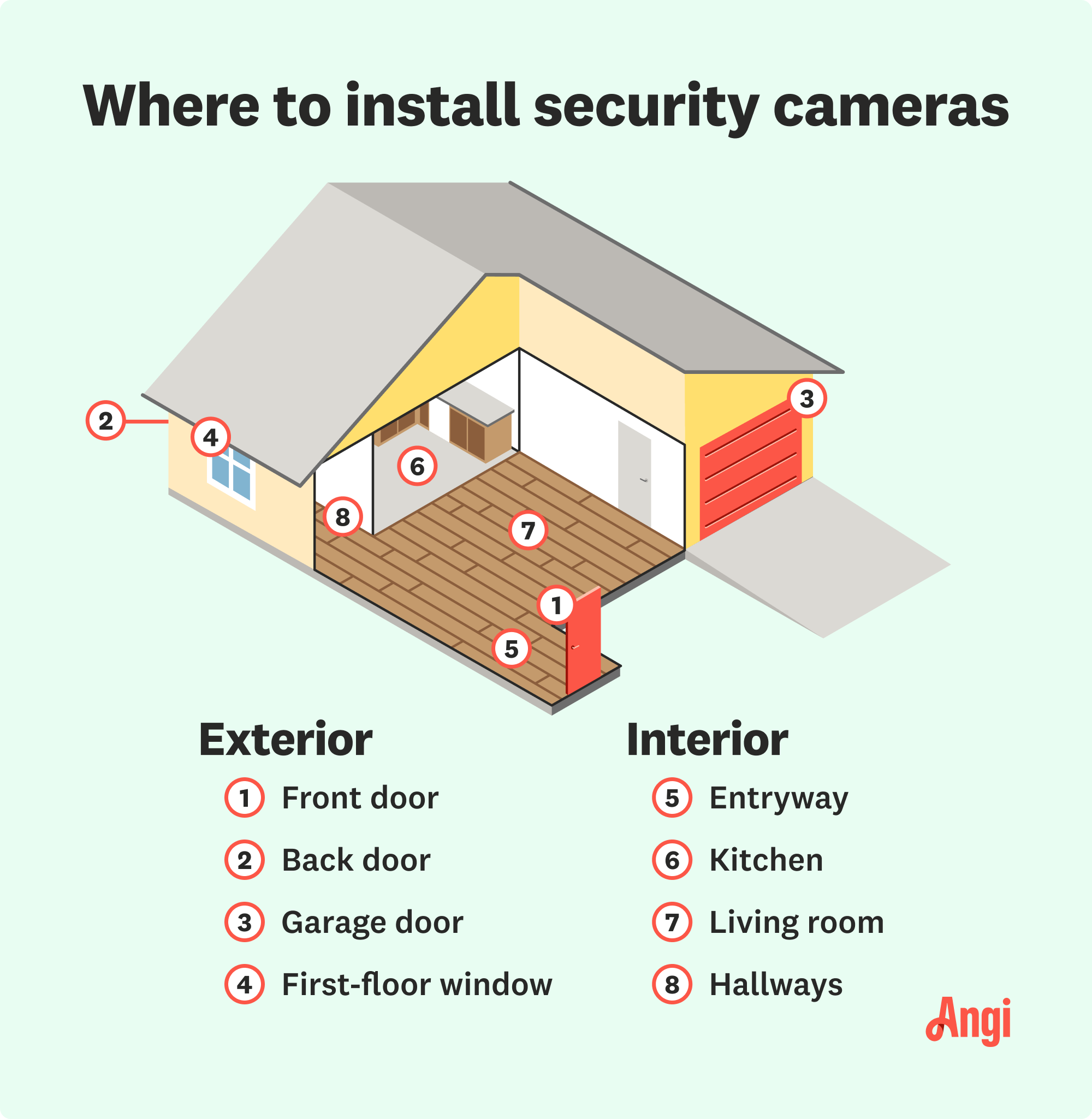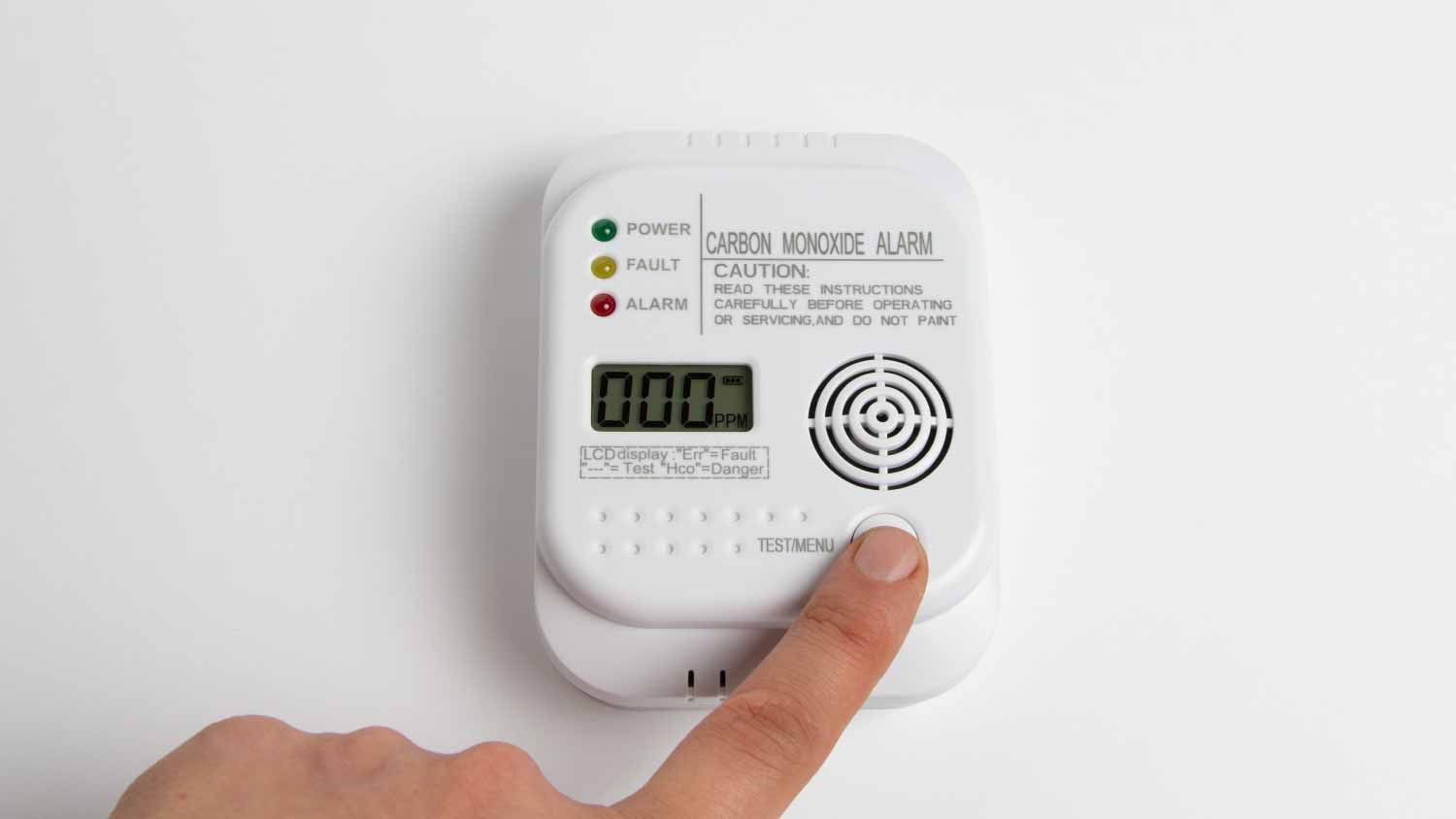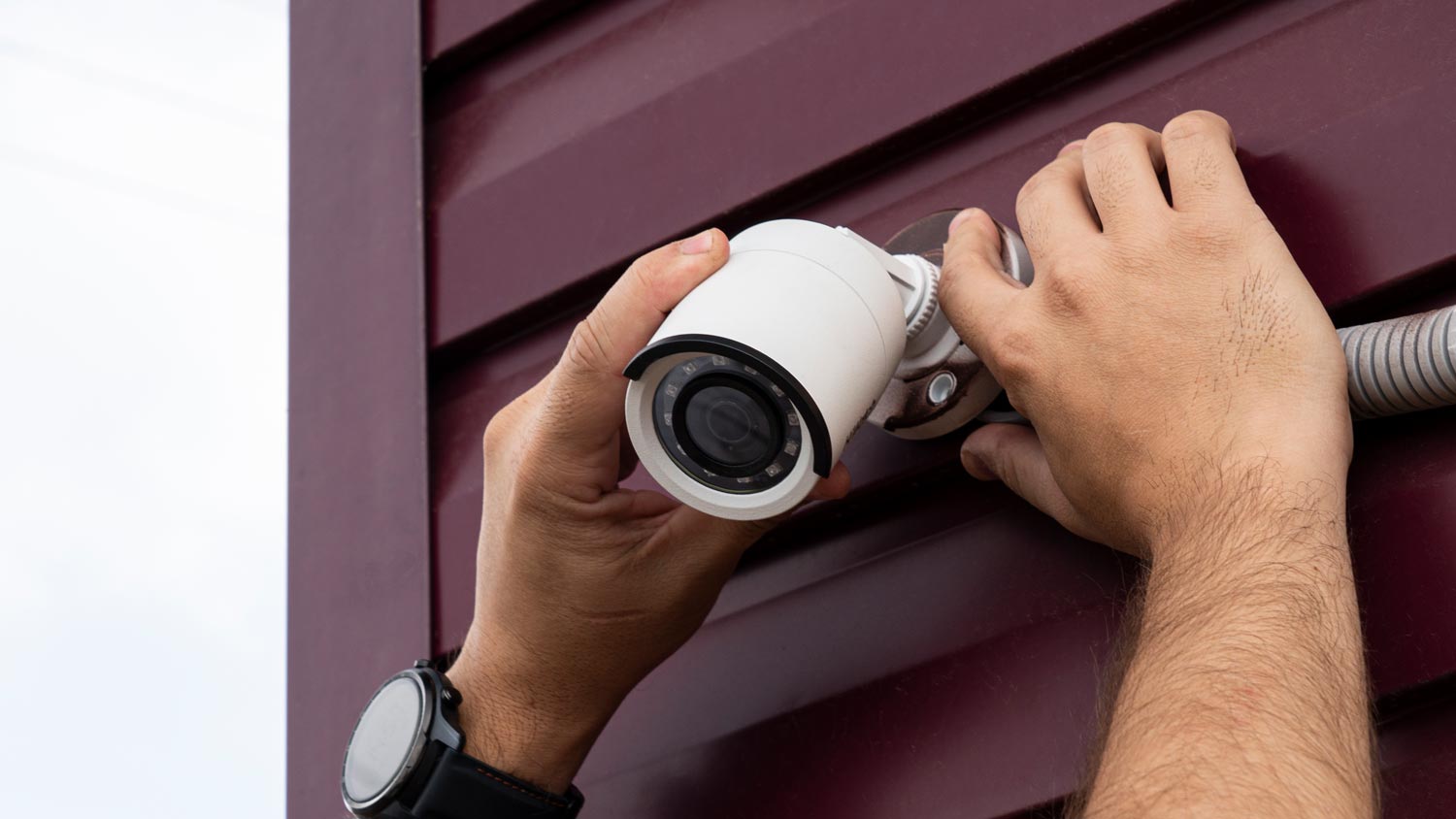10 Benefits of Home Security Cameras and What You Need to Know Before Installing
This is your sign to install home security cameras ASAP


Residential security cameras are a great tool to keep your family and home safe, but that’s not all they do. Modern security camera systems are chock full of high-tech bells and whistles that allow homeowners to take control of their surveillance needs in innovative ways.
Home security cameras continue improving, year after year, and they are also becoming more affordable. Here are the many benefits of installing a home security camera system, plus a few disadvantages you might want to know before you buy.

1. Deterring Criminals

Discouraging potential burglars from disturbing your home is the primary reason why most people install security cameras. The mere presence of a security camera deters many would-be burglars from entering a home and wreaking havoc. When deciding whether you need a security camera, consider how this technology will help deter thieves, as these systems are motion-activated and will make anyone think twice about entering your home.
2. Assisting Law Enforcement
Let’s imagine the worst-case scenario: A burglar throws caution to the wind and enters your home, despite the presence of security cameras. The system keeps helping, as the cameras provide police with crucial information about potential suspects and the crime that occurred.
Home security cameras store data in the cloud or to an integrated SD card, so police have ready access to footage to identify the suspect and, hopefully, retrieve your stolen goods. With this in mind, resolution matters, so ensure your cameras accurately capture faces before the burglar enters your home.
3. Contacting Emergency Services
The last thing you want to worry about in the event of a burglary is scrambling to contact emergency services. Luckily, modern home security camera systems take care of that for you. The specifics of this benefit vary depending on the camera’s manufacturer and the system’s design.
For example, some subscription-based camera services offer real-time live feed monitoring, so the company alerts the authorities on your behalf when they notice something amiss. Other services send alerts to your smartphone when suspicious activity is detected on the security camera, letting you decide whether or not to contact the police.
4. Protecting Packages
Security cameras help protect your valuables, but they also protect your soon-to-be valuables. Yes, we are talking about packages left on your front stoop when you’re not home. This perk is especially helpful for when you order important or big-ticket items like smartphones, computers, or jewelry.
As long as you place a camera within eyesight of your front stoop or porch, criminals may think twice before trying to get their hands on your latest purchase. And if someone does steal your packages, you can use the security camera footage to file a police report.
5. Checking on Household Members
Modern home security systems dissuade criminals, sure, but they also allow you to remotely check on what matters most, your family. Many home security cameras stream straight to your smart devices, so you can keep an eye on children and elderly family members when you’re not home.
As a bonus, most security cameras include an integrated microphone, allowing you to have a quick conversation with people on the other side of the camera. Of course, this requires installing an indoor security camera or two unless your family members spend most of their time outside on the stoop.
6. Keeping an Eye on Pets

The aforementioned security camera services are not only for human family members. Use your home security system to check in on your beloved furry friends.
Curious about what your pets get into while you are at work? Check the live camera feed. Are you worried about an elderly pet who requires special attention? Again, pop on the live stream. The integrated microphones also let you sternly reprimand any unruly pets, especially if they’re causing a stain on your hardwood floors.
7. Assessing Property Damage
Let’s paint a picture: You’re away from home on vacation when a powerful storm strikes your neighborhood. Back in the day, you’d have to wait until you got home to check on the status of your property—inside and out. Now, modern security camera systems allow you to monitor the camera feeds in real-time, so you will be the first to know if extreme winds knock out a window or if heavy rain causes an AC leak.
8. Saving on Homeowners Insurance
Major insurers tend to offer lower homeowners insurance premiums when you take steps to protect your property from fires, vandalism, and theft. To that end, installing a home security system can lower your insurance premium by up to 20 percent, making it a great way to save on home insurance.
Maximize these benefits by opting for a professional-grade security camera system with live monitoring. Some renters' insurance providers also offer reduced premiums when you install security cameras. Talk to your local home warranty or insurance provider for more information.
9. Increasing Smart Home Automation Options
Modern home security systems integrate with smart home hubs to provide a wide range of high-tech services, though these innovations are limited to more expensive models. These smart home security automations can detect the difference between a trespasser and a trusted homeowner, so systems are starting to implement smart home routines to make life easier.
For instance, if the camera recognizes you walking up to the door, it could automatically unlock it, turn on some music, or welcome you home with an audio cue. These services are reserved for professional-grade systems, but the technology is rapidly advancing.
10. Security Cameras Might Add Value to Your Home
Security cameras can be a worthy investment because they can increase your property’s value by an average of 3.5%. They provide the future homebuyer with an improved sense of security and stability, which can be meaningful for luxury homes and properties in riskier neighborhoods.
However, note that not all security cameras are made the same. To maximize the property value increase, make sure to install security cameras manufactured by wellknown, credible companies.
Drawbacks of Home Security Cameras
While home security cameras pack many benefits regarding safety, peace of mind, and more, there are cons homeowners should consider before jumping in. Doing so will help you make the best decision based on your security needs, concerns, and budget.
1. They’re an Investment
Sure, there are different types of security cameras at a broad range of prices, from relatively affordable DIY solutions to professionally installed setups. But the truth is, they all require an initial investment and often monthly fees for monitoring services.
You can expect to pay $600 to $2040 for a professional surveillance camera installation. But here's the kicker: It doesn't include the security camera cost. Cloud storage for monitoring online hovers in the $40 to $65 range per month.
2. Potential Privacy Risk
While security cameras undeniably enhance safety and provide a valuable tool for deterring crime and gathering evidence, they simultaneously introduce a complex legal landscape. In addition to intruders, these watchful eyes can capture the activities of family members, neighbors, and even passersby.
In an era where privacy is paramount, the notion of being recorded without consent can raise significant apprehension. Such unease can give rise to a host of potential legal issues, including disputes among neighbors over perceived invasions of privacy.
There is also the issue of data breaches. If the camera's data is not adequately protected, it could be vulnerable to hacking, leading to unauthorized access and potential misuse of recorded footage.
Practice password safety with your Wi-Fi network. Changing your password regularly can help prevent hackers from accessing your security devices.
3. Costly to Replace
Like all electronics, security cameras have a finite lifespan. Over time, they can malfunction and become obsolete technology. The latter will make it challenging to find parts when needed—and these cameras may no longer be compatible with software upgrades. This scenario will eventually lead to an entire and costly system upgrade from your local security company.
Frequently Asked Questions
It depends on your specific needs. A security system typically includes alarms, sensors for windows and doors, and 24/7 monitoring services, offering comprehensive protection with immediate response to potential threats. Cameras, on the other hand, primarily provide visual surveillance and evidence collection.
A security system is preferable if your primary concern is deterring intruders and receiving real-time alerts. Cameras are ideal for monitoring and recording activities but might offer a different level of active protection. In many cases, a combination of both—a security system with integrated cameras—provides the most robust home security solution, offering prevention and documentation.
While many security cameras are internet-connected, not all require a constant connection. Some wireless options operate independently of the internet, providing essential security functions even offline. They typically have features like local storage capabilities, like microSD cards or network-attached storage (NAS), which can still record footage even when Wi-Fi is unavailable. The camera-stored data can be accessed later once the Wi-Fi connection is restored.
Security camera prices vary widely, with individual cameras typically ranging from $125 to $450 on average, not including professional installation costs. The camera's quality also impacts what you pay. Expect to pay more for desirable features, including a resolution of 1080p or higher, a field of view over 110 degrees, and enhanced night vision. Remember, your out-of-pocket installation cost will increase significantly when purchasing a complete system to cover your property inside and out.
Home security cameras typically do not record continuously 24/7. Most options use motion detection technology to trigger recording when they sense movement or a significant change in their field of view. This approach conserves storage space and reduces the need for constant monitoring. When motion is detected, the camera starts recording and may send alerts to the homeowner. However some cameras offer the option for continuous recording, but this requires substantial storage capacity and may overwrite older footage when space runs out.





- Where to Place Security Cameras in Home? Key Locations
- Are Security Cameras Worth It? Your Guide to At-Home Security
- How to Choose a Home Security System: Factors to Consider When Buying Home Security Equipment
- Do Security Signs Actually Deter Crime?
- How to Tell If Your Security Camera Has Been Hacked and Tips to Prevent Hacking
- Wired vs. Wireless Security Cameras: A Full Guide
- Do Alarm Systems Deter Burglars? Which Home Security Methods Actually Work
- How Much Does a Security System Affect Home Insurance?
- How to Do Home Security System Maintenance: Weekly, Monthly, and Yearly Checklist Items
- Wired vs. Wireless Home Security Systems: Full Guide











